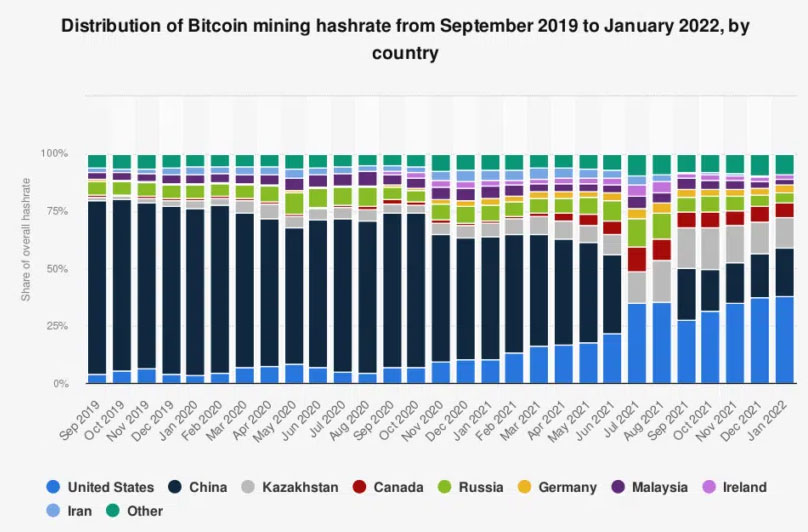When Bitcoin (BTC) reaches $50,000, miners could be tempted to accumulate block rewards. Because of the rise in price of bitcoin, miners could have to sell fewer coins to maintain their income flow. This buildup would remove more Bitcoin from circulation and drive up the price of the asset.
Factors Driving Bull Market
Earlier this year, a number of analysts made the observation that the “Great Accumulation” stage of the cryptocurrency market is when growth will eventually start. They projected that once the regulations were strengthened, Asian traders would push the markets into a positive zone.
Standard Chartered has been under pressure from the Hong Kong Monetary Authority (HKMA) to provide services for cryptocurrency firms operating in the area. Only a few cryptocurrencies, including bitcoin, ethereum, and cardano, are permitted for listing by approved exchanges under the new HKMA rules.
Soon after, the Korean Parliament approved a measure to safeguard users of virtual assets, and most recently, the Monetary Authority of Singapore unveiled fresh ideas for asset custody. Additionally, Standard Chartered and US exchange Coinbase have teamed together to provide cryptocurrency trading in Singapore.
Bitcoin Liquidity
The halving of Bitcoin, which is expected to take place in the spring of 2024, is another reason encouraging stockpiling. The incentives given to Bitcoin miners for discovering the hash of a block and publishing it are half every four years. The fall in emission rates for the following year will reduce mining payouts to 3.125 BTC each block.
However, due to the departure of two market makers, there has been a significant decline in liquidity for Bitcoin as of late.
Sam Bankman-Fried’s former company Jane Street and Jump Crypto recently left the cryptocurrency market by withdrawing $10 million in BTC liquidity over the previous quarter. Market-makers are essential for maintaining rallies because they connect buyers and sellers. Due to a shortage of liquidity, Bitcoin’s Q1 spike following the US financial crisis could not be maintained.
The US Securities and Exchange Commission (SEC) has received an updated proposal from BlackRock, the largest financial manager in the world with over $10 trillion in assets under management, to introduce a bitcoin spot exchange-traded fund (ETF). The SEC initially turned down the company’s application for lack of adequate market monitoring. Following the SEC’s refutation, Fidelity Investments also reapplied for the spot ETF.
Follow for more:
Telegram: https://bit.ly/3KbviBe
Twitter: https://bit.ly/3Zr6h9E
Website: https://bit.ly/3FWBaMc




